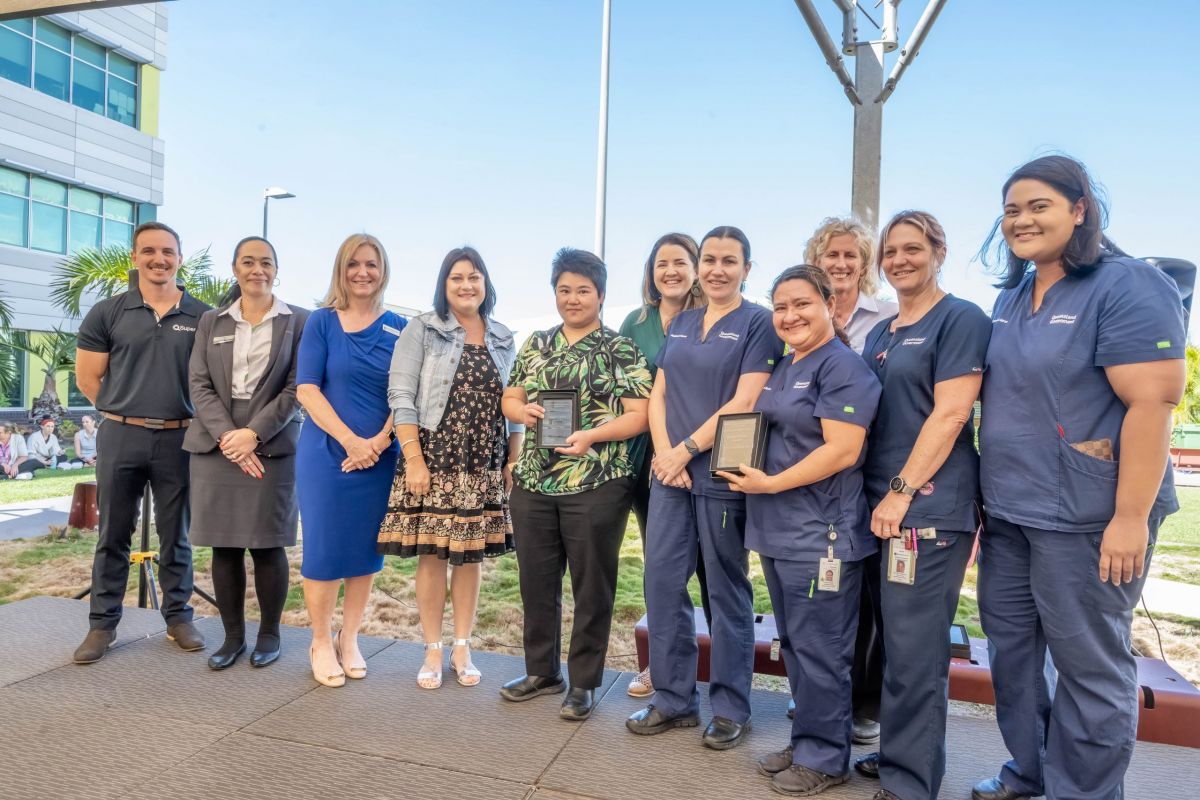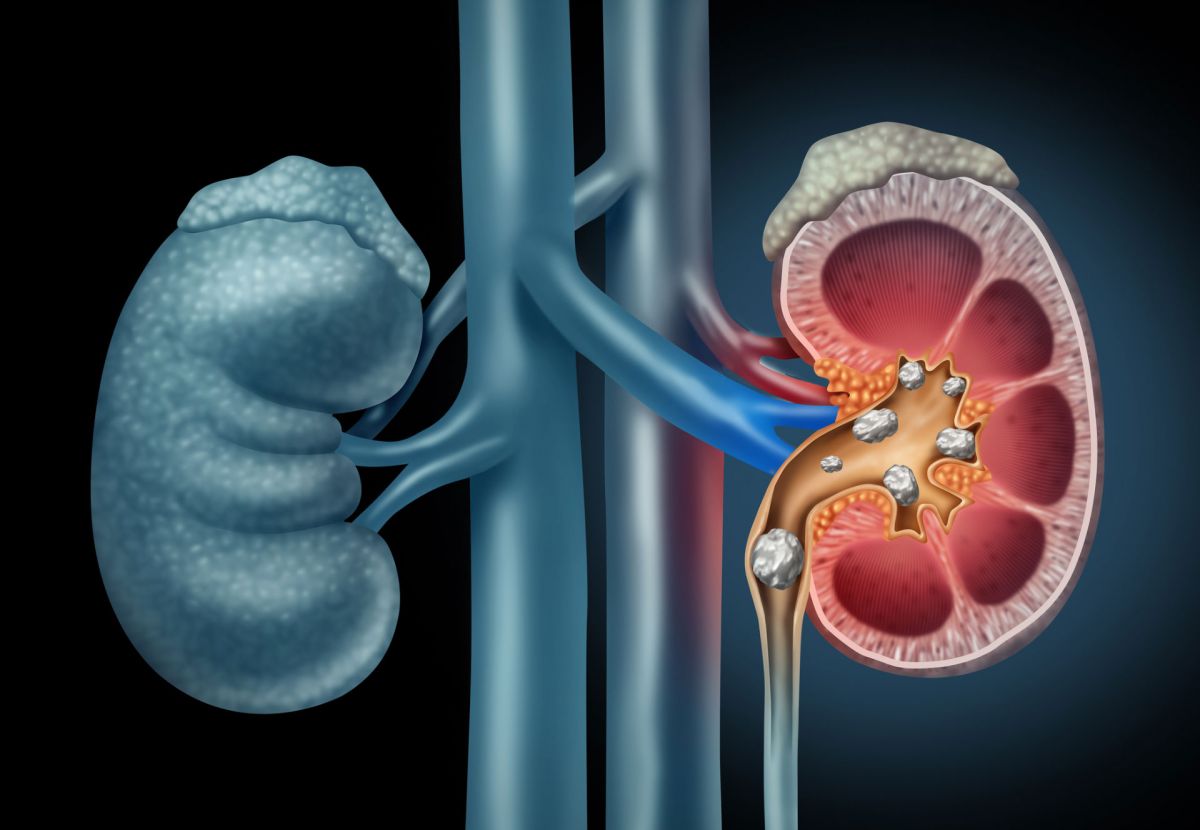26 September 2023
Bringing out the best in medicine's next generation

Mentoring and training focused on producing the best junior doctors and basic physician trainees is the key motivator for Mackay-based JCU College of Medicine and Dentistry senior lecturer, Dr Danielle Wu.
Dr Wu, who is also a highly regarded Nephrologist at Mackay Base Hospital, says prioritising the training and education of the junior doctors who enter her realm is a great outcome for all.
“We aim to help the trainees, it doesn’t matter which university or centre they have come from, we want to see the best out of the training time they have with us,” Dr Wu says.
“The better the doctors are as a cohort, the better the outcome will be for the patients. We like to see our trainees getting ahead. We try to maximise the potential of all our trainees.”

Pictured: Dr Danielle Wu (centre) receiving the Mackay Hospital and Health Service (MHHS) People's Choice Award 2021, as voted by patients and their families.
Why Mackay is at the top of the class for trainees
Dr Wu is passionate about working in the coastal city of Mackay and its hospital, close to the beautiful Airlie Beach and Whitsunday areas, and is eager to highlight the full spectrum of training opportunities available. She says Mackay is an ideal training ground for junior doctors.
“You will also be exposed to complex medical patients that are the typical cases you will see in the Royal Australasian College of Physicians (RACP) clinical exam without having to look very hard for cases”, Dr Wu says.
“As there is only one public hospital in Mackay, all the complex cases come into our hospital. There is a good case mix for the trainees who will see everything from common to rare conditions. As most of these cases are managed by the one hospital, they will have a wide range of exposures.
“Trainees work closely with medical consultants. We have most of the sub-specialties available locally and you could have supervision from medical specialists across these areas on a daily base.”
“The trainees learn to utilise the resources they have to help patients. We tend to have a holistic and wider view of a patient not only for their medical comorbidities, but also for their psychological and social health. The trainees will become very well-rounded physicians after seeing a range of interesting cases and pathology in Mackay as a result.”
Dr Wu says the Mackay education team ensure the junior doctors work as doctors, under close supervision, and are not merely notetakers or observers. We teach our basic physician trainees how to make decisions to build their confidence to manage patients with supervision from early on in their careers. Maturity in decision-making, ability to synthesise complex medical cases, communication skills, and patient-centred care are important skills to have as a physician.
“As the Basic Physician Trainees work closely with subspeciality consultants they learn decision-making directly from consultants,” she says.
“The Basic Physician Trainees will have sub-speciality access to General Medicine, Cardiology, Renal Medicine, Medical Oncology, Respiratory Medicine, Palliative Care Medicine, Gastroenterology/inflammatory Bowel Disease, Neurology, and Infectious Disease. The medical department still needs physicians in Hepatology, Geriatric Medicine, Acute General Medicine, Rheumatology, and Perioperative Medicine. The medical department is expanding to care for patients locally in Mackay.
“We also have an accredited General Medicine advanced training position with the chief medical resident position available for trainees who are interested in General Medicine training and developing leadership skills post-clinical exam.
"We have a world-class bench-to-bedside gastroenterologist/inflammatory bowel disease expert, Dr. Robert P Anderson, who has recently joined us to mentor trainees who are keen on developing research and publication skills.
Going the extra mile for our junior doctors
Dr Wu’s passion for teaching and expanding the learning experience for the junior doctors at Mackay hospital runs deep.
She has co-authored the best-selling FRACP written exam textbooks detailing how to navigate the Basic Physician Training and takes a lot of pride in ensuring the trainees are well prepared for their written exam, clinical exam and become good physicians.
“I’m quite familiar with how to train the trainees and also what the college is looking for,” she says.
“With the teaching role, we get many trainees coming through to us, local trainees but also trainees from the tertiary hospitals such as Royal Brisbane and Women’s Hospital, Prince Charles Hospital, Sunshine Coast University Hospital, and other city hospitals.
“The trainees who came to Mackay are quite appreciative of the efforts we put into our teaching daily, and our commitment to helping them to pass their exams. Visiting and locum specialists are amazed by the interesting cases we have here in Mackay.
“We offer personalised clinical exam training led by experienced RACP college examiners and educators to maximise trainees’ chance of passing the clinical exam in the first go. So far, we had 100% passing rate in the last few years for trainees who spent significant amount of time training with us.”
Doing more with less in the regions
Moving to Mackay eight years ago after her renal advanced and renal transplant training at the Royal Adelaide Hospital and Flinders Medical Centre in South Australia, Dr Wu says practising medicine in the regional city plays right into her patient focused ethos.
“I can directly help a lot of regional patients, especially as they may sometimes have difficulty accessing tertiary centre care and you save them the trip to Brisbane or Townsville to attend clinical appointments in a tertiary hospital. It means more time patients could spend with their family and spending less time away from home,” she says.
“Acute conditions we can deal with locally first. If the procedures are not provided in our centre, we can refer patients to other centres. We aim to treat everything locally, allowing the patient to be closer to their family, and for a sick patient who finds it difficult to travel we try to provide care in the one place.”
For Dr Wu, her work in Mackay takes in the full spectrum. Now she’s hoping more doctors will opt to stay or return to Mackay to fill a growing demand for medical care.
“We will definitely need more specialists in the future, there is certainly plenty of work in a hospital that is expanding,” she says.
NQRTH connects medical students, interns and junior doctors with a network of opportunities and resources designed to create a supportive and clear path to specialist (including general practice) training, and beyond, in our regions. Our network works together to strengthen medical specialist training with the view to build a health workforce prepared to meet the health needs of our regional and rural communities in Cairns, Central West, Mackay, North West, Torres and Cape, and Townsville. NQRTH is facilitated by James Cook University, which partners with hospital and health services and training providers to create a connected career pathway beginning at the medical undergraduate level right through to fellowship.

Your pathway into Renal Medicine training
> Entry requirements
> Training Time
> How to apply
> View RACP Nephrology handbook
NQRTH is an initiative of the Australian Government's Integrated Rural Training Pipeline (IRTP) and is facilitated by James Cook University in partnership with public and private hospitals, Queensland Aboriginal and Islander Health Council (QAIHC), health services, Aboriginal Community Controlled Health Organisations (ACCHOs) and GP clinics.
Cairns region
(07) 4226 7138
Central West region
(07) 4764 1547
Mackay region
(07) 4885 7122
North West region
(07) 4764 1547
Torres and Cape region
(07) 4095 6103
Townsville region
(07) 4781 3424


